It can be surprising for some to learn that, when it comes to apartment living, a small dog does not always equate to an easier life. Indeed, some medium-sized and larger dogs can thrive in an apartment, as long as they have adequate walks throughout the day and are mentally stimulated. While there are a number of extra factors to take into account, as well as the standard considerations to mull over, it is very possible that you can have your ideal pooch regardless of your living situation.
As long as your pup is well cared for and physically and mentally encouraged, you could technically have any dog you like. That said, there are some breeds that take to living in a smaller space much better than others. Below you’ll find our top picks for apartment friendly dogs, while also some information you may need to think about when looking to adopt or buy your new pup.
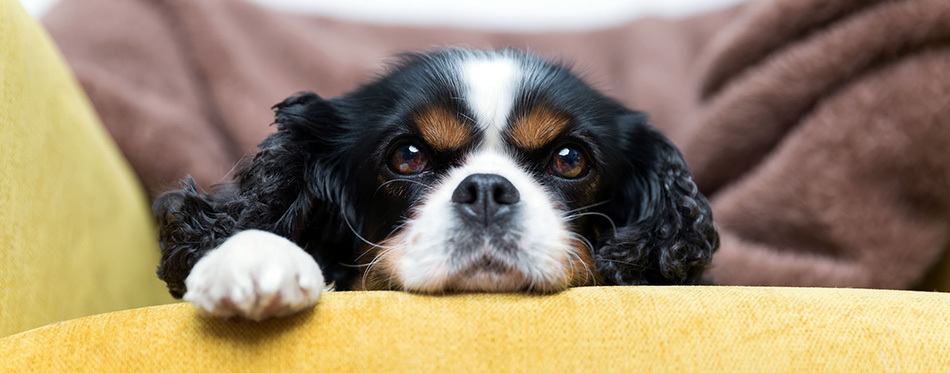
Things to Take Into Consideration When Buying a Dog for Your Apartment
While there are many individual differences to take into consideration, and you will need to find a dog that is compatible with your personality, as well as your lifestyle, the main things to consider when buying a good apartment dog include:
- Size – If you don’t have a preference on what type of dog breed you prefer, then it’s always a better choice to have a smaller dog for apartment living. They’re also much more likely to tire quickly and are less likely to take out their pent-up energy on your furniture.
- Temperament – Family dogs and lazy dogs take to apartment living better than more excitable breeds. Low-energy dogs are inevitably going to be happier in a smaller environment, too.
- Sound – Some dogs, such as beagles, can be very noisy. Some love to howl their heart out through the day and night while others can be very yappy. While training can play a part in stopping this, your apartment dog’s breed plays a key factor in this, too.
- Age – While there are some great reasons to get your dog at a young age, older dogs tend to be house-trained and much more settled in themselves than their younger counterparts.
- Friendliness – A sociable dog is much less likely to cause aggro with your apartment neighbours. A dog that has been bred to guard and is very defensive is likely to be uncomfortable with the noises coming from above, below and in the hallways of an apartment building.
- Your landlord or service provider – Check over your contract to make sure that your landlord or similar has no power to remove you and your pet from the property, should you buy a dog. Some landlords will accept dogs if you put down a higher deposit, so if you see a clause prohibiting dog ownership, give them a call and see if this is something they might be interested in discussing with you.
Good Apartment Dog Breeds
English Bulldog
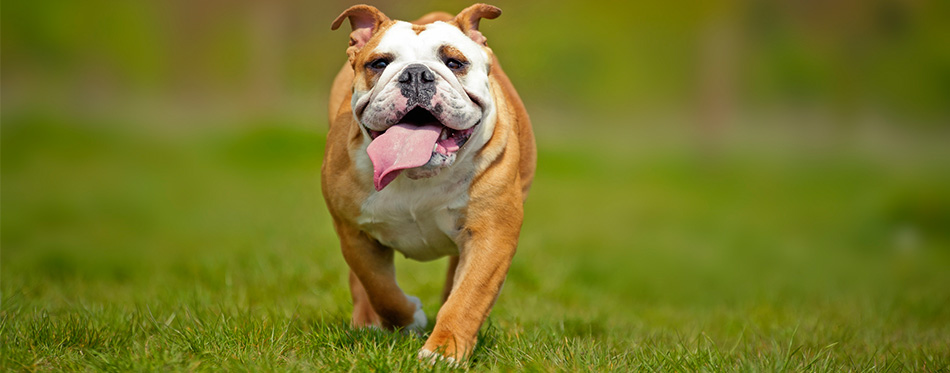
Pros
A breed that looks big and burly but really just wants to spend all day cuddled up to their owners. Bulldogs make great apartment dogs because they’re lazy and relaxed. They have a short-haired coat that requires little maintenance and are happy to have a more relaxed walking schedule. At the same time, they look scary enough to ward off any would-be criminals in the area, with a very intimidating bark, despite being very quiet the majority of the time.
Cons
Bulldogs aren’t the smartest pets in the world and they can take a little while to train. They are also more likely to suffer from health problems, particularly in their eyes and on the joints of their legs. Without much exercise, they’re also likely to put on weight easier than some other dog breeds.
Bichon Frise
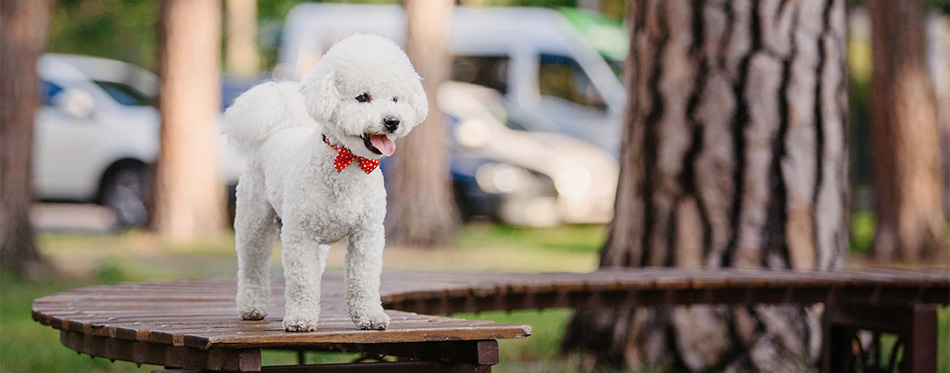
Pros
Bichons are very small dogs that can be very independent. They rarely shed and so make for great pets around the house, considering that there isn’t much tidying up to do after them and they’re very easy to groom. The Bichon Frise is also very trainable and intelligent.
Cons
Unfortunately, Bichons don’t appreciate being left alone for long periods of time, especially since they’re a very energetic breed. It is recommended that you hire a pet-sitter if you’re looking to introduce this dog to your apartment lifestyle.
Cavalier King Charles Spaniel
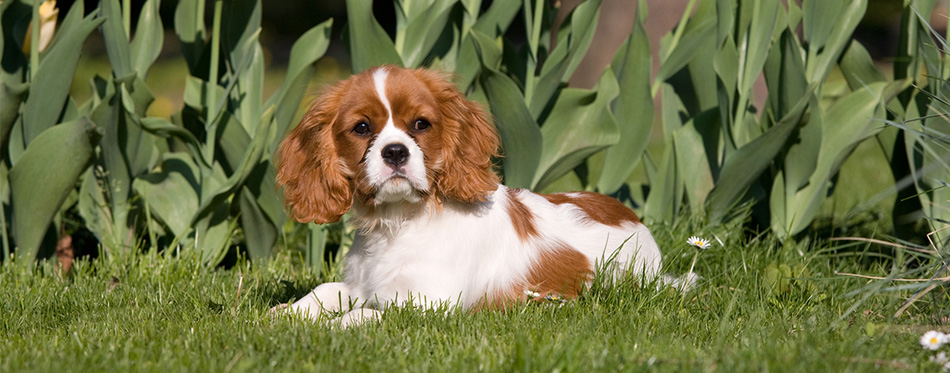
Pros
As one of the most adaptable breeds around, King Charles Spaniel is great for apartment owners looking to adopt or buy a dog. They’re extremely friendly and are great family dogs, since they’re very friendly. This translates well to them being a good apartment dog since they are unlikely to become stressed by strangers nearby.
Cons
Cavaliers enjoy to the company of their masters and are likely to want to follow them, wherever they may be. In other words, your Spaniel is quite likely to suffer from separation anxiety if your working hours are quite long. They can also have issues with housetraining (as with many smaller breeds) but with consistency, this can be trained out.
Chihuahua
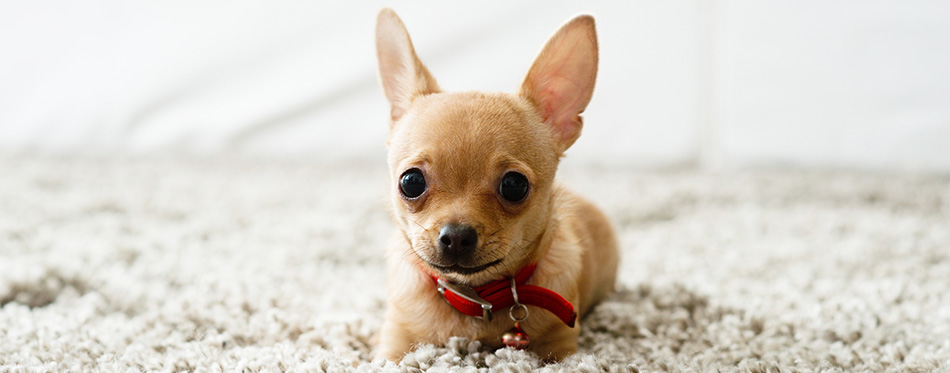
Pros
A very happy dog that is known for its small stature and excitable nature, these intelligent dogs are playful- but without the bounds of energy that can sometimes work against some other dogs, in apartments. Their short coats also mean that they are unlikely to shed but very easy to groom, too.
Cons
Chihuahuas are not recommended for homes with young children, as they are much more likely to cause an accident due to their boisterous behaviour and general excitability. They are also very noisy dogs, which can mean neighbours may see them as a nuisance.
Take a look at our review of Dog Food for Chihuahuas for more options.
Coton de Tulear
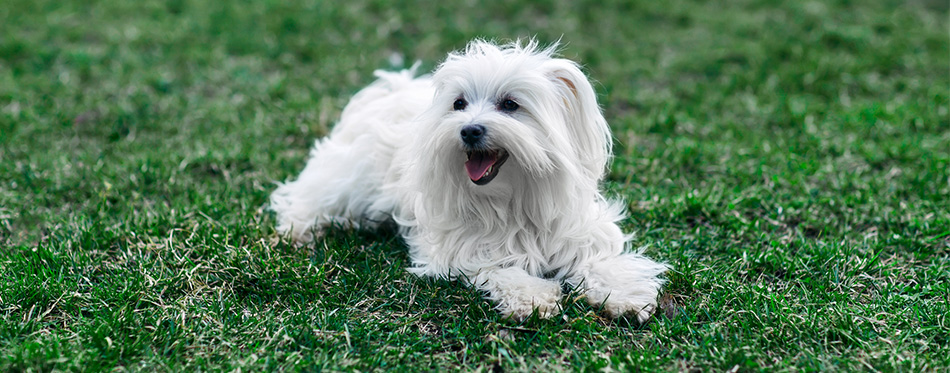
Pros
A very happy, very cuddly dog that is extremely affectionate and loves his family. The Coton de Tulear is a great dog for apartment living since they are intelligent, sociable and very easy to maintain. They are never happier than by their human’s side.
Cons
Their need to socialise often and in-depth with their family means that the Tuleur should not be left alone for longer periods of time. They will become unhappy, suffer from separation anxiety and start being loud. Especially since this dog is naturally very “chatty” even when they’re happy.
Dachshund
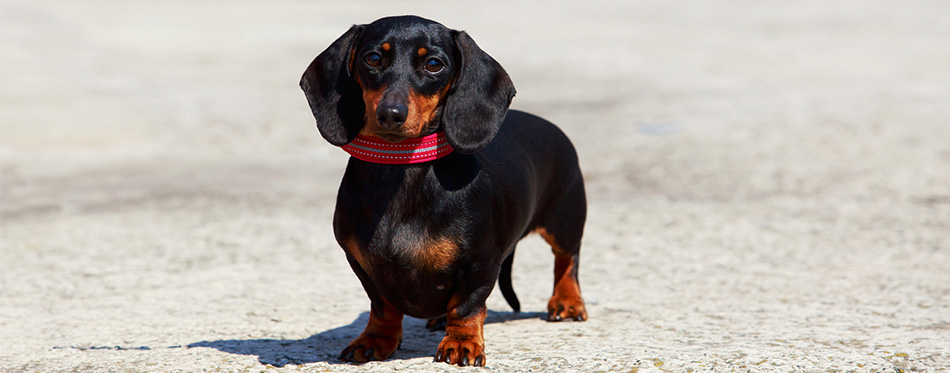
Pros
Great for those who are new to dog ownership, the Dachshund is easy to care for, easy to groom and easy to maintain. They’re intelligent, though can be tricky to train, and love their families- while also being aloof to strangers.
Cons
The Dachshund is a myriad of contradictions. Loving their humans but being averse to strangers, they’re easy to look after but are very likely to gain weight if fed too much, and their energy levels are relatively low, yet they love to spend time howling and playing. If you’re likely to be out, it’s probably best to avoid this apartment dog, since they can get up to all sorts of tricks while their owner is out!
Check out our guide on Dog Food for Dachshunds for more info.
Final Thoughts
It’s always going to be a little more difficult to find the perfect dog when looking for the best dog for apartment living, but the truth is; the most important thing is how much time you spend with your new pup, training them, cuddling and playing with them. I’m a huge believer in getting out what you put in and feel that this is especially true when raising your dog. While there are a lot of cons available in this list, all of these can be worked on with a little training and the right guidance.
So be sure to always pay attention to your puppy pals and seek out the best training schools available in your area. It’s the most sure-fire way to have a happy dog, a happy human, and a happy apartment!
Sources:
- Choosing the Right Size Dog for Your Home – PetMD
- 10 Best Mid Size Dogs For Apartments and Small Houses – Best Protection Dogs

